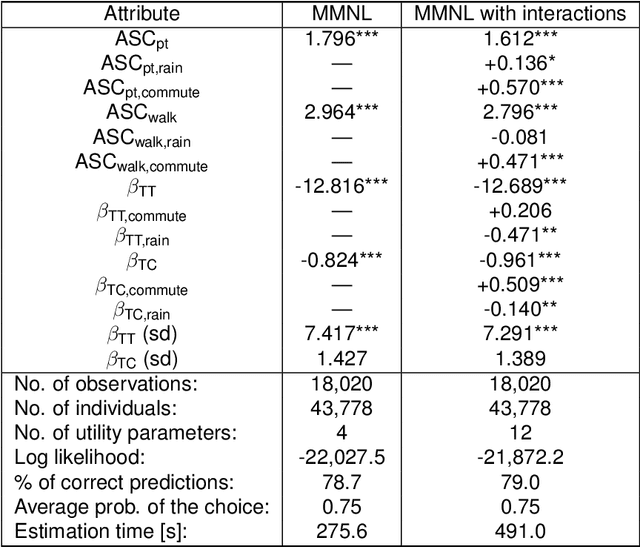Context-aware Bayesian choice models
Paper and Code
Oct 11, 2022


The mixed multinomial logit (MMNL) model assumes constant preference parameters of a decision-maker throughout different choice situations, which may be considered too strong for certain choice modelling applications. This paper proposes an effective approach to model context-dependent intra-respondent heterogeneity and introduces the idea of Context-aware Bayesian Mixed Multinomial Logit (C-MMNL) Model, where a neural network maps contextual information to shifts in the preference parameters of each individual in each choice occasion. The proposed model offers several key advantages. First, it supports for both continuous and discrete variables, as well as complex non-linear interactions between both types of variables. Secondly, each specification of the context is considered jointly as a whole by the neural network rather than each variable being considered independently. Finally, since the parameters of the neural network are shared across all decision-makers, it can leverage information from other decision-makers and use it to infer the effect of a particular context. Even though the C-MMNL model allows for flexible interactions between attributes, there is hardly an increase in the complexity of the model and the computation time, compared to the MMNL model. We present two real-world case studies from travel behaviour domain - a travel mode choice model and a bicycle route choice model. The bicycle route choice model is based on a large-scale, crowdsourced dataset of GPS trajectories including 110,083 trips made by 8,555 cyclists.
 Add to Chrome
Add to Chrome Add to Firefox
Add to Firefox Add to Edge
Add to Edge